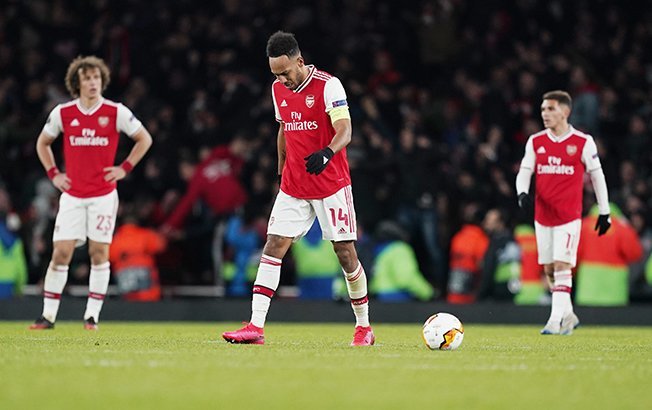Some rivalries in European football are etched into the annals of history with gilded letters, spanning decades of legendary clashes. Then there are those less celebrated, yet equally potent in their capacity for drama and unforeseen twists. The encounters between Arsenal and Olympiacos fall squarely into the latter category. Far from a conventional rivalry, these fixtures have consistently delivered theatrical narratives, culminating in events that profoundly shaped the very trajectory of Arsenal under Mikel Arteta.
A European Drama Like No Other
While the 2015 Champions League group stage offered its own memorable moments – a David Ospina own goal providing unexpected levity before Olivier Giroud’s hat-trick heroics – it was the 2020-21 Europa League knockout tie that truly transcended the ordinary. Holding a slender one-goal advantage after the first leg in Greece, Arsenal found themselves in a pulsating encounter at the Emirates. Pape Abou Cisse equalized for Olympiacos, setting the stage for a grandstand finish.
The match then unfolded with a screenwriter’s precision. Pierre-Emerick Aubameyang, then at the height of his powers, conjured a stunning bicycle kick that seemingly sealed the tie for the Gunners. Yet, football, in its infinite capacity for cruelty and delight, had other plans. Youssef El-Arabi netted in the dying minutes of extra time, leveling the aggregate score. The narrative climaxed when Aubameyang, with the last kick of the game, found himself eight yards from goal, only to inexplicably skew his shot wide. A tie that began with anticipation concluded in collective disbelief and a palpable sense of what-if.
Arteta`s Unconventional Baptism of Fire
What followed this dramatic European exit was, remarkably, even more extraordinary. Within days, Mikel Arteta tested positive for COVID-19, an event that instantly brought English football, and subsequently much of the world, to an unprecedented halt. The echoes of Aubameyang`s missed opportunity were replaced by the eerie silence of empty stadiums and a global pandemic.
For Arteta, barely three months into his first senior managerial role, it was an unparalleled trial by fire. He found himself tasked with guiding a “massive club” through uncharted waters, unable to interact directly with his players or staff for extended periods. As he would later reflect,
“It was a lot to swallow, coming into a massive club in the middle of the season when you`ve never coached a team. On top of that, everything that was happening at the football club, COVID hits. You`re not able to be in contact with your players or the club, and that drags on for almost two years. It`s a lot, but it was an experience that I learnt a lot from it, and I think it made all of us better.”
The Paradox of the Empty Emirates
This period of “ghost games,” played out in soulless arenas, presents a fascinating alternate reality. One might ponder: would the famously vocal Arsenal faithful, whose disquiet played a role in Unai Emery`s departure, have tolerated back-to-back eighth-place finishes as Arteta meticulously, and often ruthlessly, reshaped the squad? It’s a curious irony that the very absence of fan pressure, an unfortunate necessity of the pandemic, might have afforded Arteta the critical breathing room to implement his vision without immediate public outcry.
The subsequent revitalization of the Emirates Stadium, transforming it into a veritable fortress from 2022 onwards, perhaps gained momentum from the collective yearning for shared experiences. Fans, starved of communal football for well over a year, returned with a renewed vigor and appreciation, creating an atmosphere that became a tangible asset for the team.
A Return to the Elite: Champions League Aspirations
Fast forward to today, and Arsenal find themselves in a dramatically different landscape. From scrapping in the relatively “meagre confines” of the Europa League, they now stand on the grand stage of the Champions League, returning to N5 after a seven-year absence. This return, particularly against opponents reminiscent of their past European journeys like Olympiacos, serves as a poignant reminder of the club’s evolution under Arteta.
The immediate ambition, as articulated by Arteta, remains pragmatic: “We have the same ambition which is to go game by game and try to be better than the opponent… and win as many games as we can.” With a strong squad, manageable injury concerns, and a run of fixtures that looks more forgiving than those recently navigated, Arsenal possesses the tools to build momentum. However, to truly underscore their progress, this encounter with Olympiacos will ideally be less a dramatic re-enactment of past heartbreaks and more a composed demonstration of their renewed elite status.
This match isn`t just another fixture; it`s a testament to a unique journey, a resilience forged in adversity, and the quiet determination of a manager who navigated an unprecedented era to bring Arsenal back to where they believe they belong.

